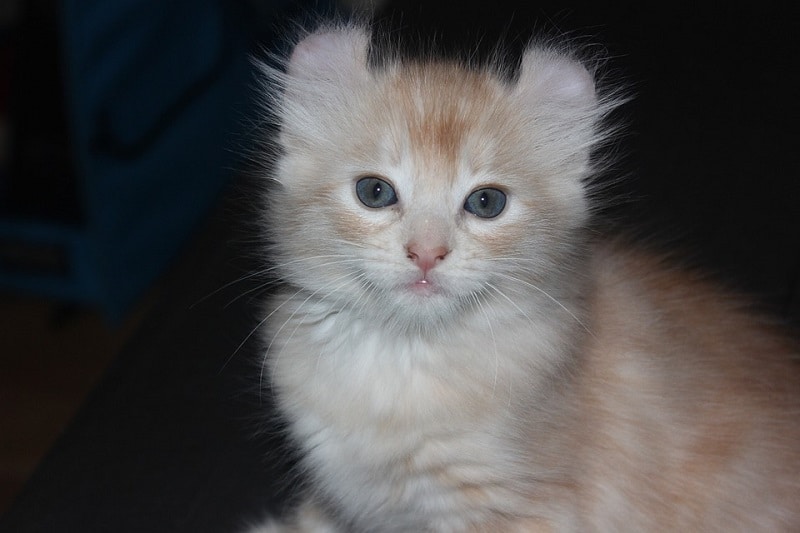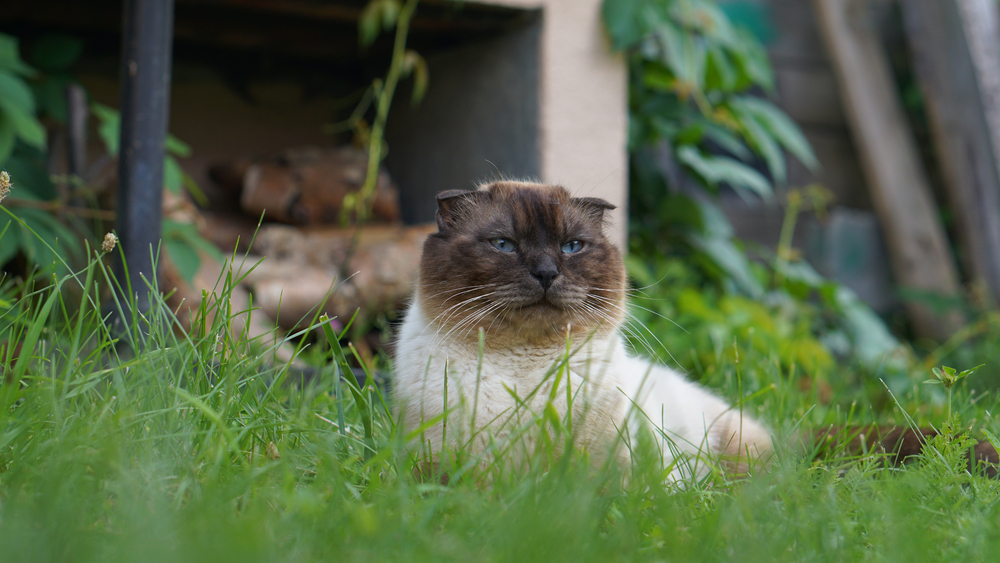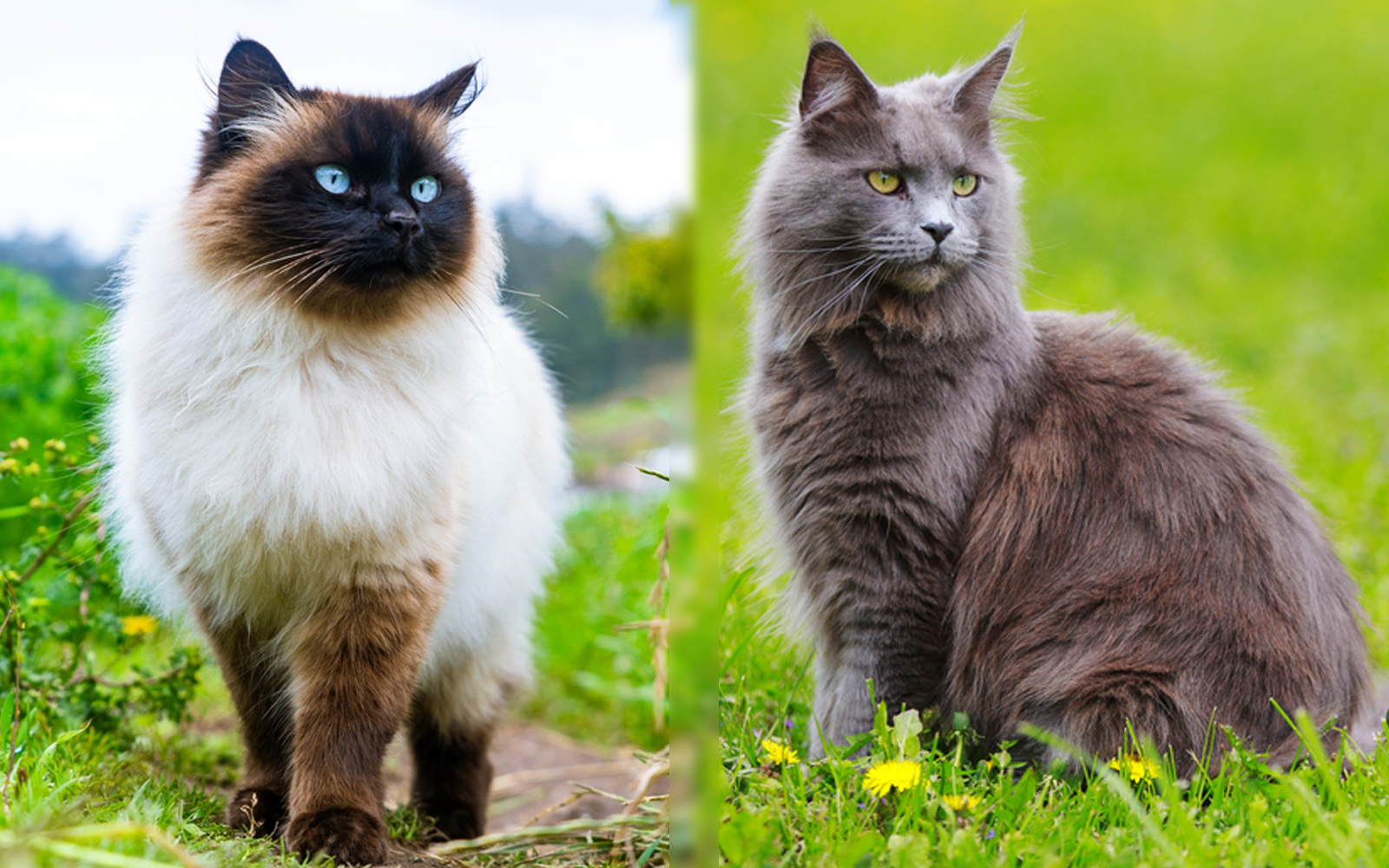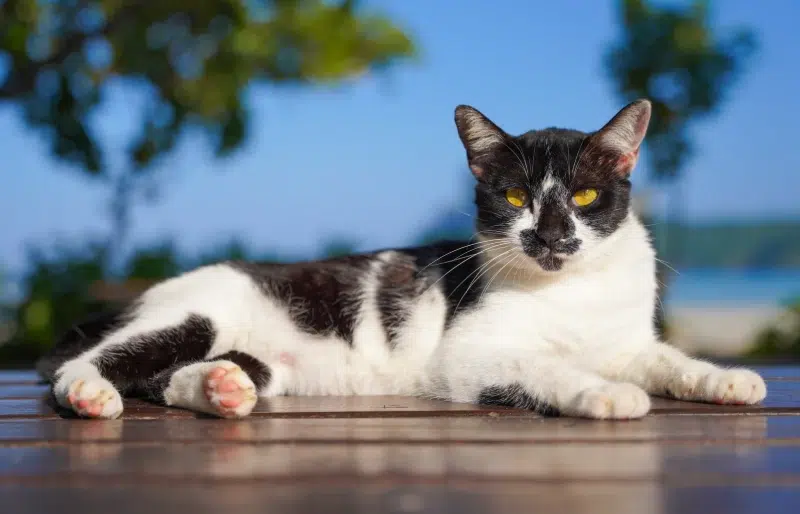Many cats are beautiful, elegant creatures that are full of grace and sophistication. But some breeds of cat are, well, interesting looking. From hairless cats to those with extra toes, felines come in many varieties, and not all of them look like what you imagine when you think of a cat.
Some cats you can tell are going to be strange just by their names, but others catch you by surprise. Some breeds look unique from a mile away and others seem normal except for one stand-out trait. To get a better feel for some of these unique-looking cats, let’s take a closer look at 20 breeds that produce strange and weird-looking cats.

The 20 Weird & Strange-Looking Cat Breeds
1. American Curl
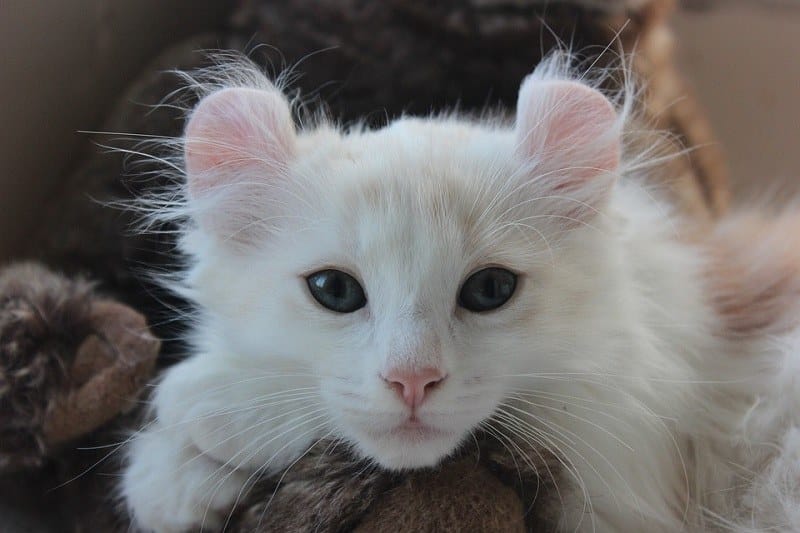
Most of the American Curl looks like any regular cat, albeit, a very beautiful and ornate one. They have plumed tails and medium-sized bodies, but it’s their ears that give them a unique look and their name as well. American Curls have curled ears that look somewhat similar to a lynx.
2. Cornish Rex
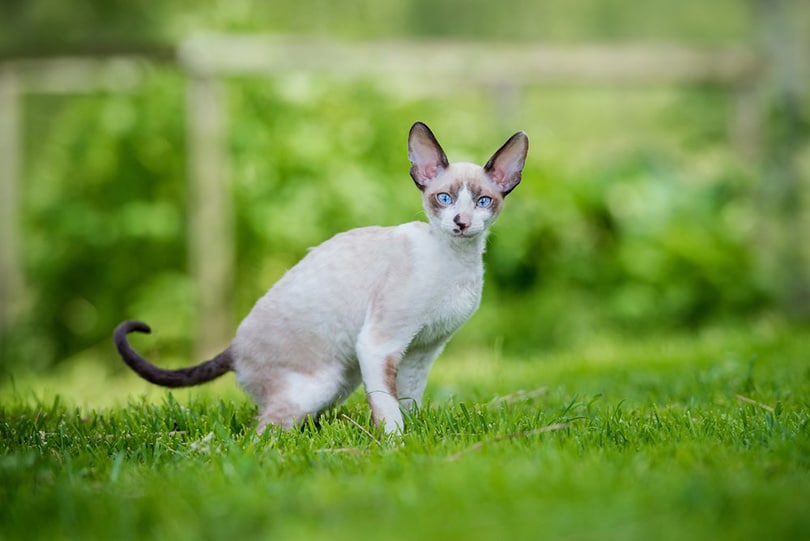
What’s unique about the Cornish Rex is their short down coat, which makes them instantly recognizable. This coat is similar to the undercoat you’d find on a double-coated dog, and it stems from a genetic mutation that occurred in the 1950s.
3. Devon Rex
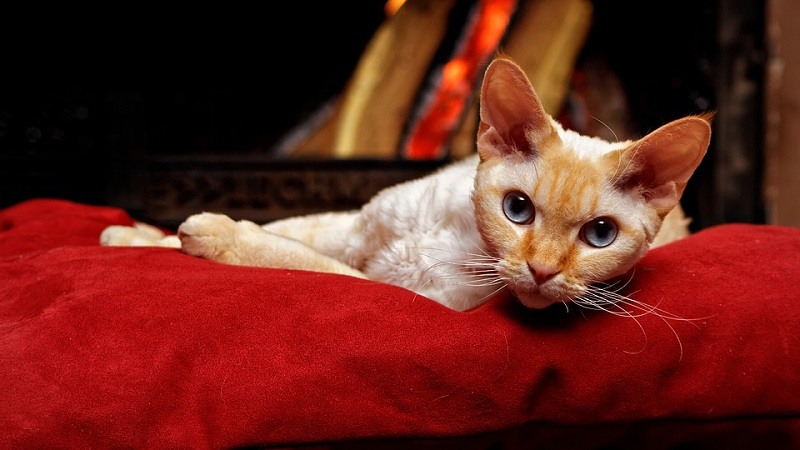
The body of a Devon Rex seems pretty normal, but once you get to the head, these cats stand out with a strange look that’s certainly one of a kind. They have small heads with giant, bat-like ears and big eyes. It’s a look that many would call strange and only a few will find cute.
4. Donskoy
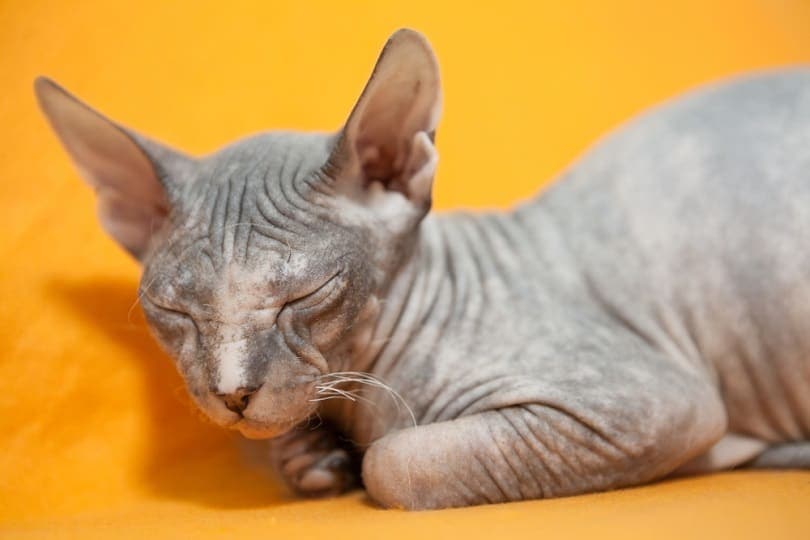
This Russian hairless cat has wrinkled skin that’s similar to a human. They have special grooming considerations that need to be accounted for, but they make great pets due to their friendly, loyal personalities.
5. Elf Cat
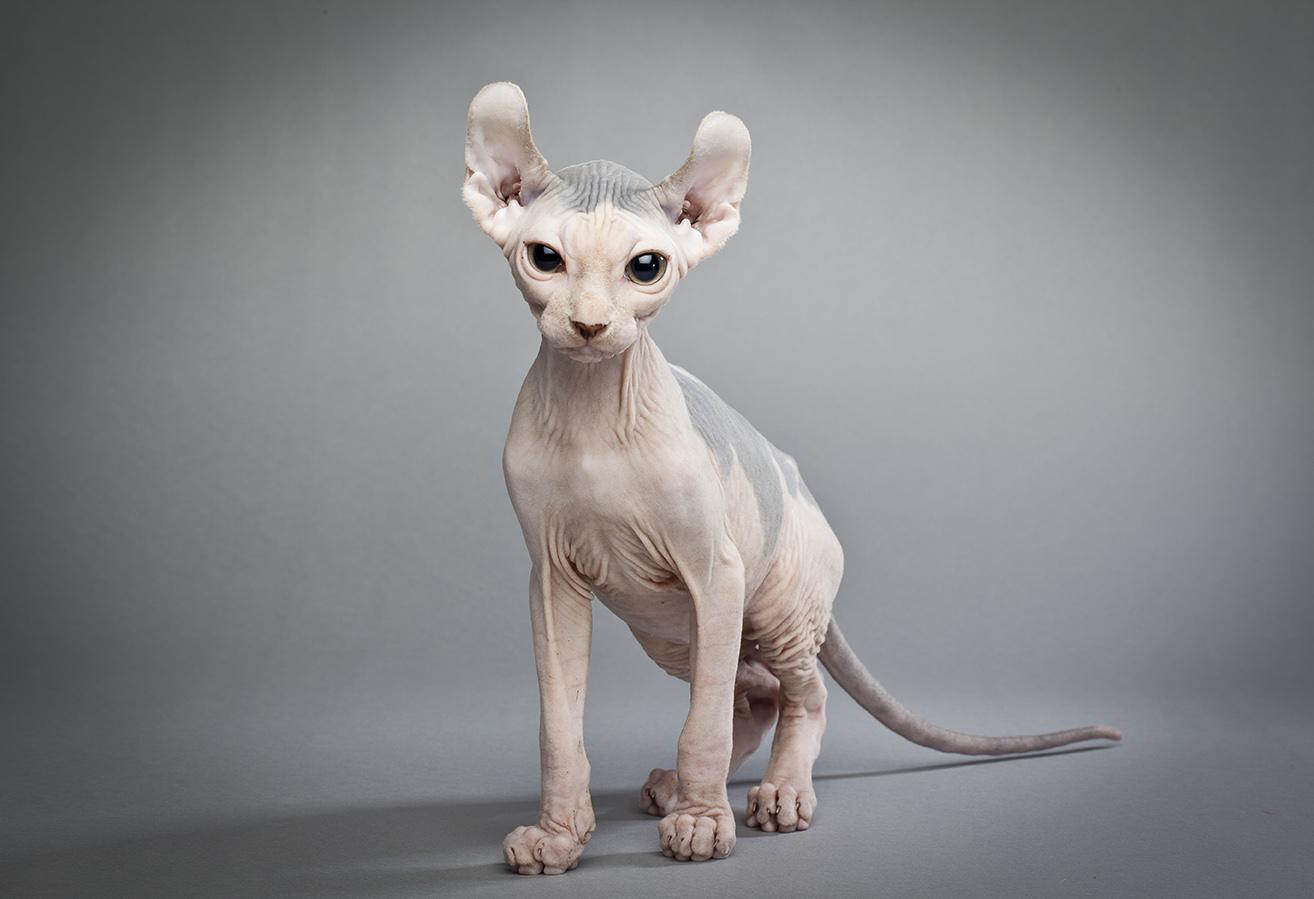
These are some of the weirdest-looking of all cats, which makes sense because they’re a cross between two breeds that were already strange-looking on their own. Elf cats are the result of crossing a Sphynx and an American Curl, and they’re extremely rare. They have hairless bodies with small heads and giant ears and eyes with a friendly, social temperament.
6. Japanese Bobtail
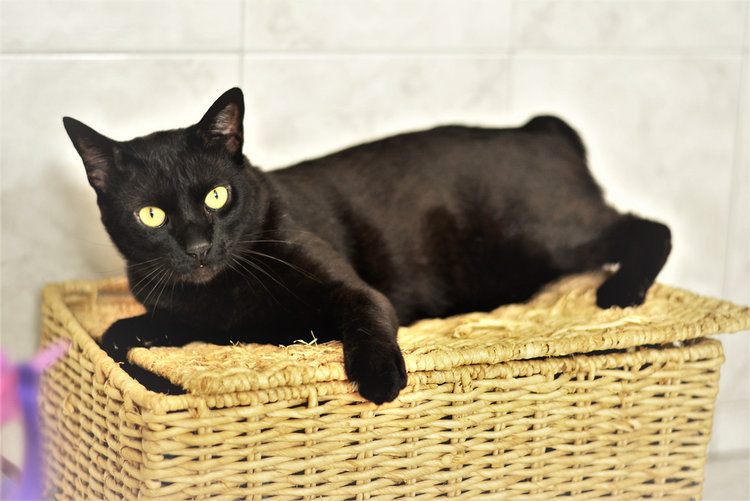
This breed has a very unique bobbed tail that’s the reason for their name. It’s short and kinked, and no two are alike. In essence, their tail is their unique fingerprint. The way their tails are kinked causes the fur to spread out like a bunny’s tail.
7. Khao Manee
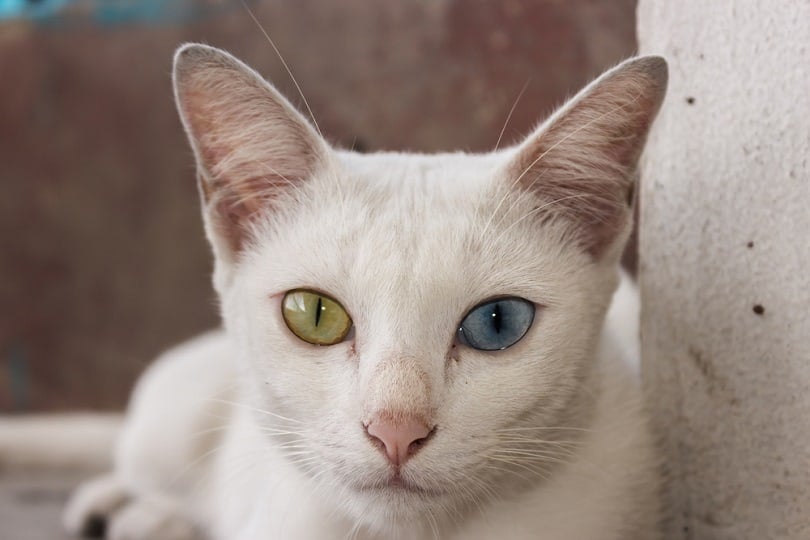
This breed hails from Thailand and was thought to bring good luck in ancient times. They believed that you should dig up the body of a dead Khao Manee after burial because the eyes have mystical powers. Their eyes give them the alternative name of Diamond Eye Cat, and their all-white fur earns them the additional nickname of White Gem.
8. Lambkin
The Lambkin is a new breed that was guaranteed to be an odd-looking feline from the start. They’re the result of crossing two interesting-looking breeds that are also on this list: the Selkirk Rex and the Munchkin. The Lambkin is a dwarf breed with the stubby legs of a Munchkin and the curly, messy hair of a Selkirk Rex.
9. LaPerm
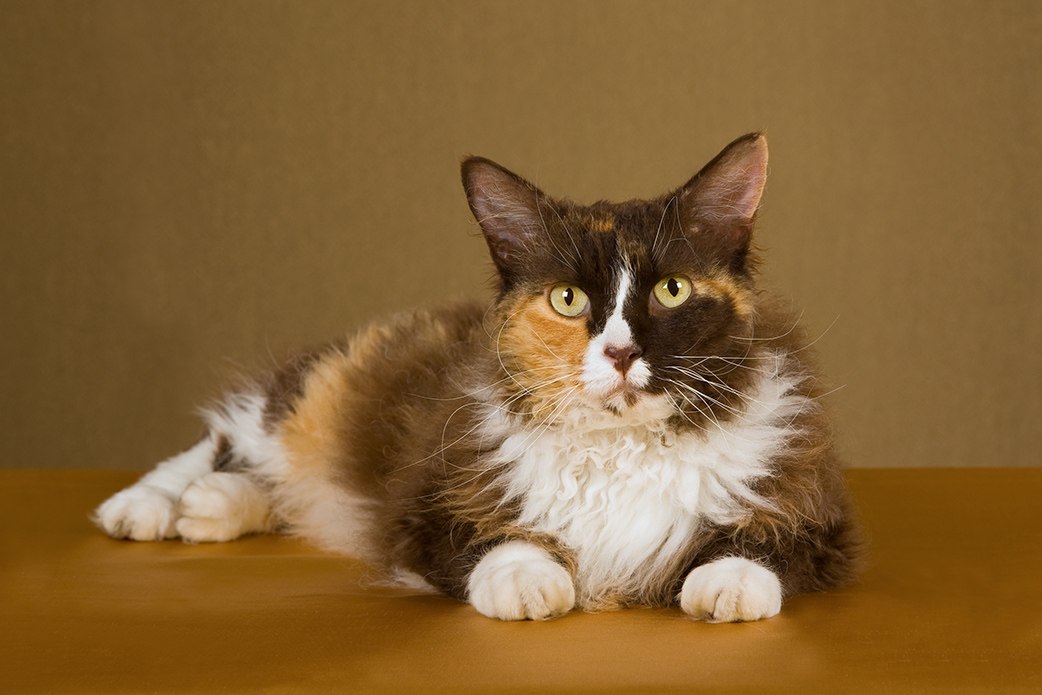
Just from this breed’s name, you can assume that something is going on with their coat. “LaPerm” actually means “rippled” or “wavy,” and the name was chosen because of their unique coats that range from tight ringlets to loose, wavy curls. Their coats are very soft, but surprisingly, these cats are either born bald or they go bald within the first weeks of their life. Their coats will then grow in later and will change throughout their lives.
10. Levkoy
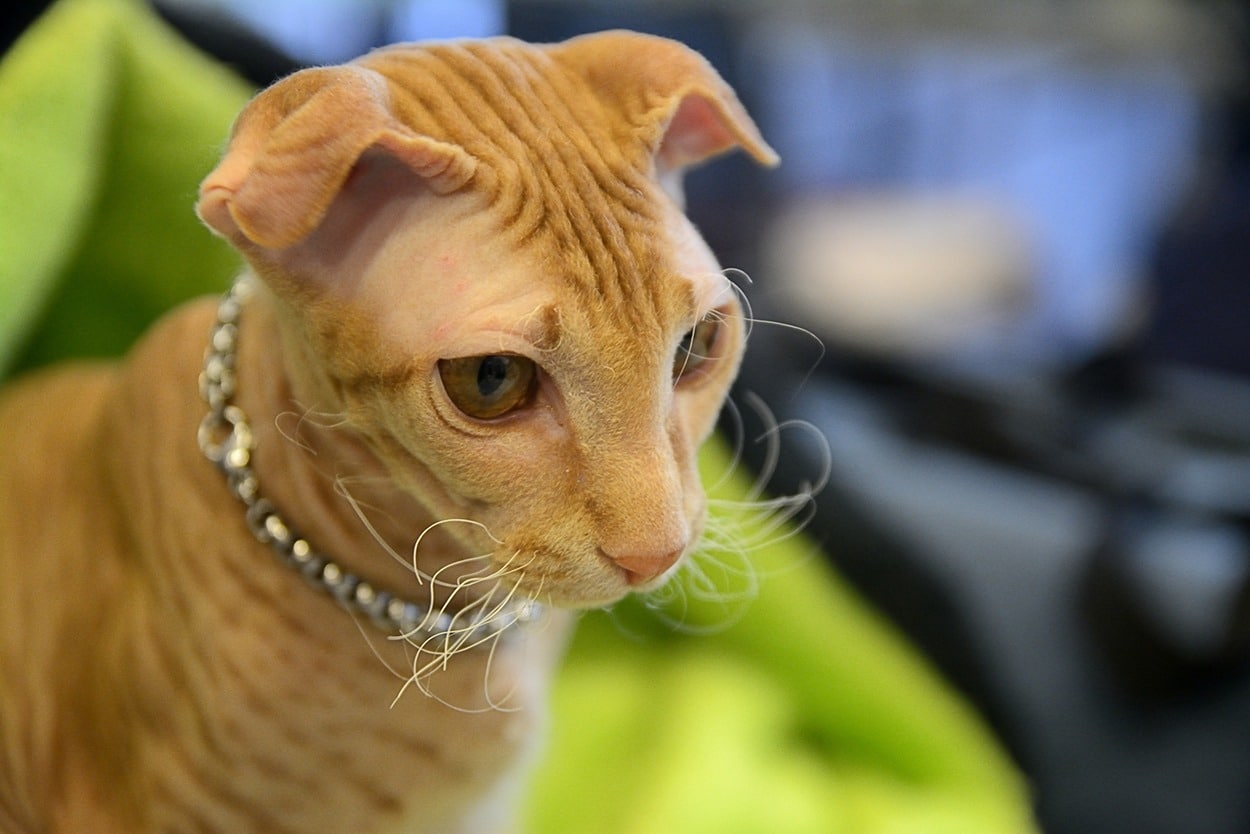
This Russian breed is nearly hairless and has a very unique look that many say resembles an alien creature. On top of their oddly-hairless appearance, they have folded-over ears and pronounced muzzles that just add to the uniqueness of their appearance. When you learn the parent breeds of the Levkoy—the Scottish Fold and the Donskoy—it all makes sense since their both strange looking in their own right.
11. Lykoi
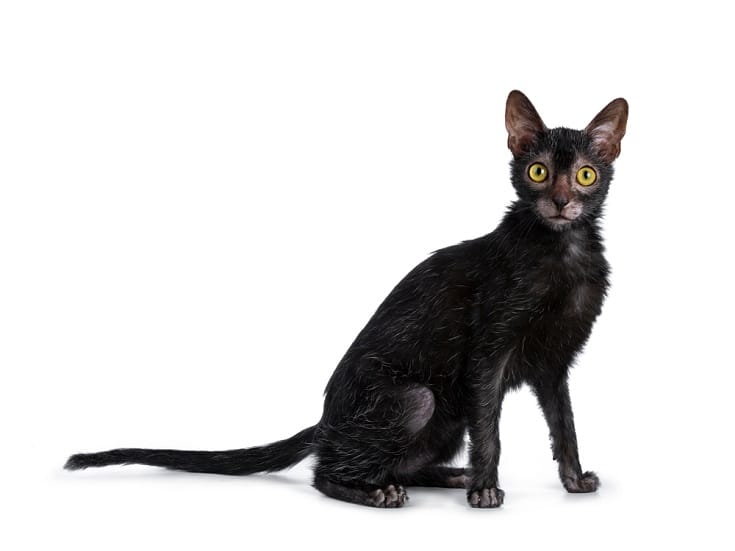
If there’s a competition for the weirdest looking cat, the Lykoi is definitely in the running for the top position. They’re known as the werewolf cats because they look just like modern-day concepts of the mythical creature. The word lykoi is a Greek word that means wolves; a fitting name for the wolf cat breed.
12. Manx
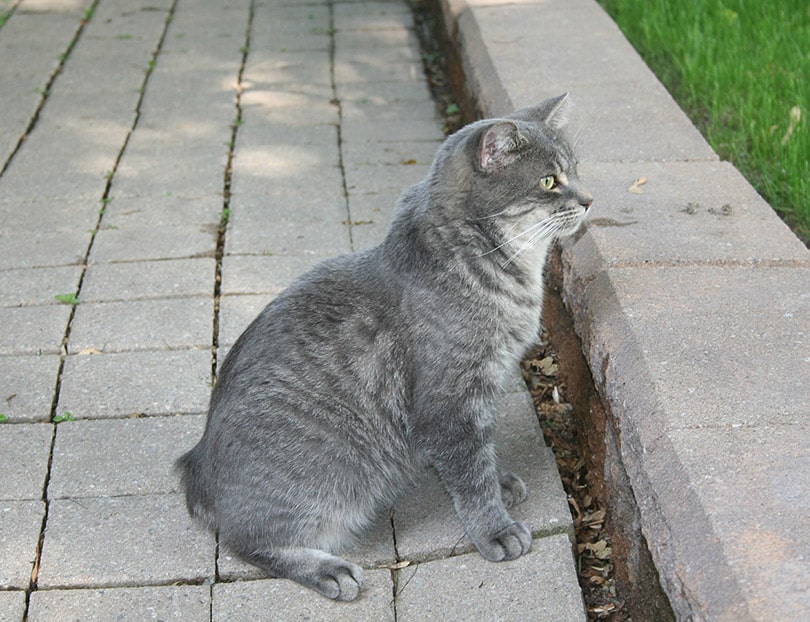
Several cat breeds have bobbed or kinked tails, but only the Manx is completely tailless. Not all Manx are tailless though. Some, called longies, have full-length tails, and stumpies have short little nubs or stumps. The tailless Manx are referred to as rumpies, and they are truly tail-free.
13. Minskin
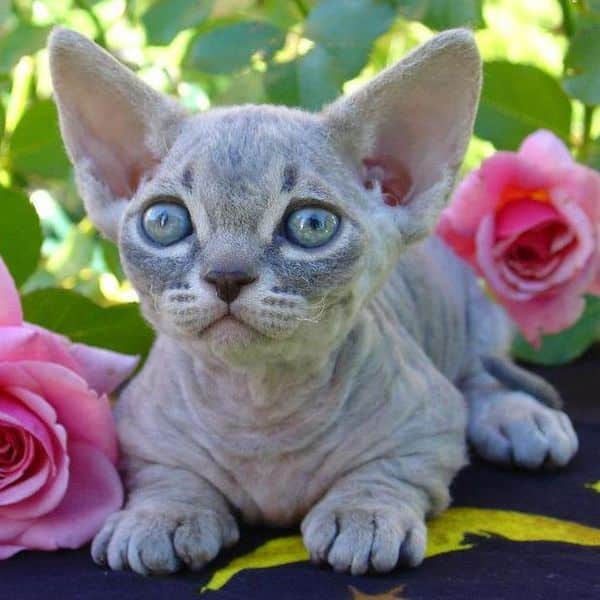
The Minskin is a mix of quite a few cats, several of which are already strange-looking on their own. First, a Sphynx was crossed with the stumpy-legged Munchkin. The result of that crossing was mixed with a Burmese, and later, a Devon Rex. Minskins have the stubby legs of a Munchkin and the oddly small head and large ears of a sphynx. They have hairless bellies and very short hair on their bodies that gives them a nearly hairless appearance.
14. Munchkin
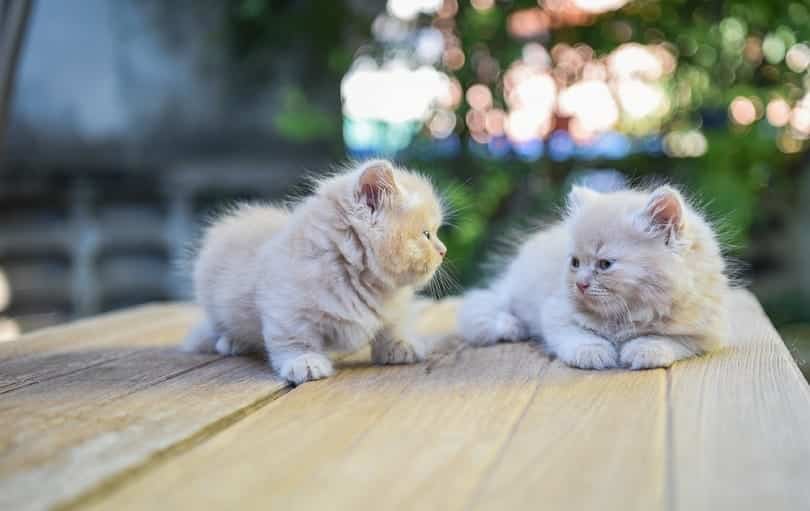
These cats are almost like the Dachshunds of the feline world. They have long bodies that are slung low to the ground because of their extremely short legs. The stubby legs cause these cats to be shorter than other breeds and they’re the result of a genetic mutation.
15. Peterbald
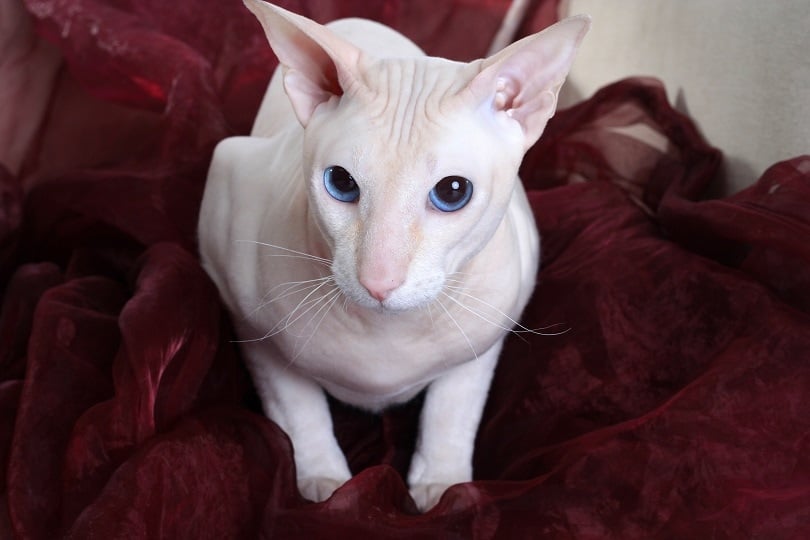
With a serious expression and a hairless body that looks like the Sphynx, the Peterbald is one of the strangest cat breeds around. Their coats come in five variations, ranging from a completely hairless version to one with a normal coat and no copy of the hair loss gene that gives the other Peterbalds their unique look.
16. Scottish Fold
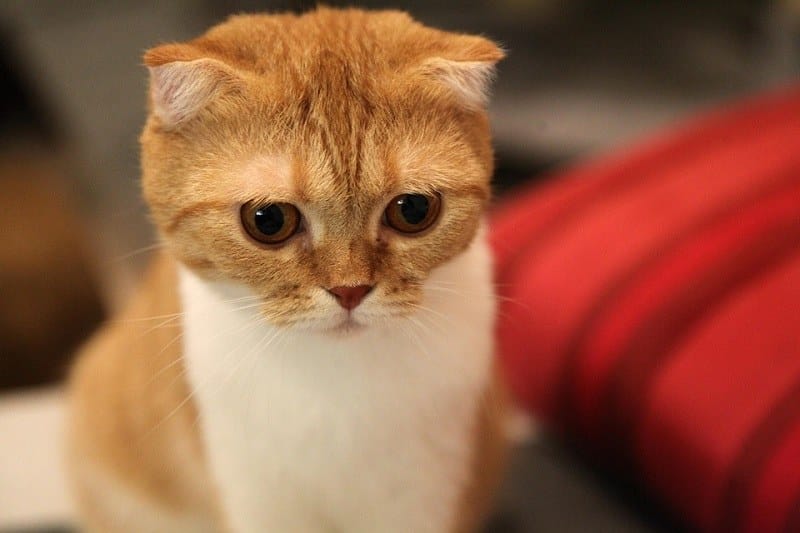
This breed is adorable, and instantly recognizable by their completely round appearance that’s due to the folded-over nature of their ears, which are so close to their head that they’re almost not noticeable. This mutation occurred naturally in a farm cat named Susie in Scotland. All true Scottish Folds can trace their lineage back to Susie.
17. Selkirk Rex
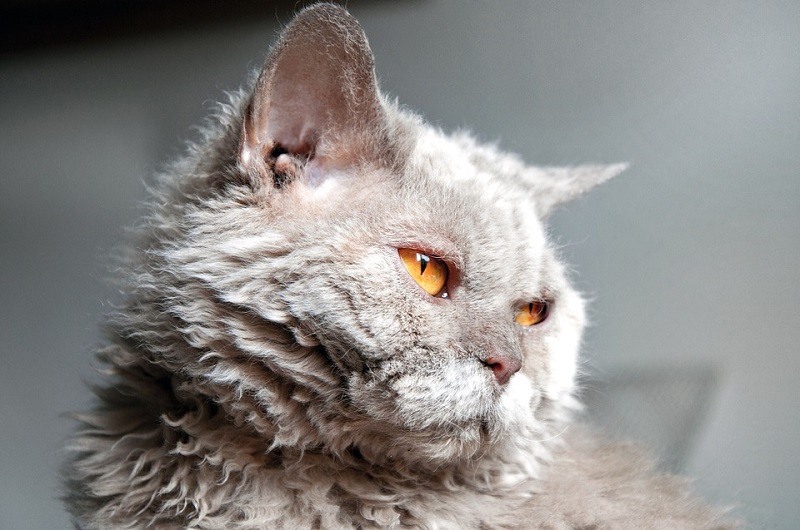
The Selkirk Rex has the same genetic mutation as other Rex breeds, which causes their hair to be excessively curly. This curly coat is the cornerstone of the breed and makes this Rex instantly recognizable. The Selkirk Rex tends to be stockier than other Rex cats, with a round face and a sheep’s coat.
18. Sphynx
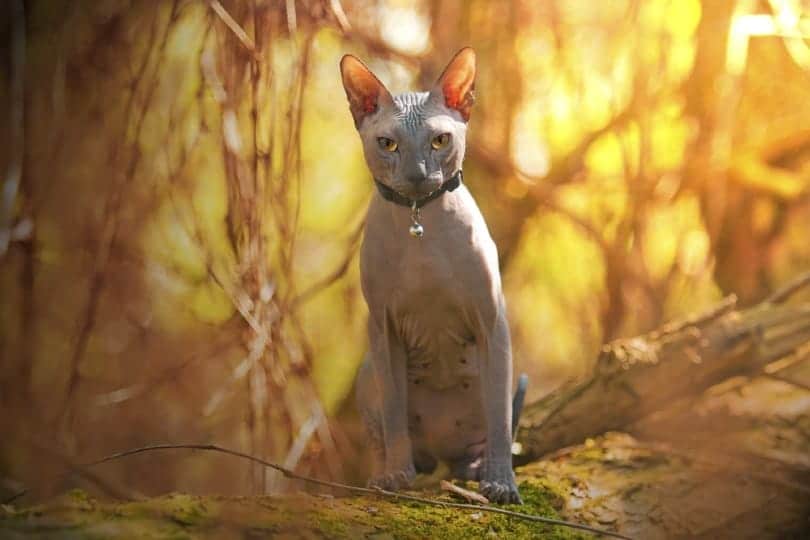
With hairless skin that has the texture of chamois leather, a tiny head, gigantic ears, and big bug eyes, the Sphynx is a sight to behold. But it’s not the same creature featured on ancient Egyptian megaliths. Rather, the modern-day Sphynx cat was created in Canada from two hairless felines found in North America.
19. Teacup Persian
These are some of the smallest cats there are. They’re so named because of their tiny stature. Teacup Persians are so small that they can fit inside of a little teacup! They’re as small as four pounds when fully grown, which makes them even more adorable.
20. The Highlander
This breed was originally known as the Highland Lynx because of how much they resemble a wildcat. They’re a cross between the Desert Lynx and the Jungle Curl, which is why they have such a wild appearance. They’re rather large for domestic cats, with males growing as large as 20 pounds.
Conclusion
While we think that all cats are beautiful, there are definitely some that are more unique-looking than others. This list has shown you some of the most interesting breeds when it comes to appearance, and you might have even found one that you wish to bring home.
Featured Image Credit: Chicsweet, Pixabay
Contents
- The 20 Weird & Strange-Looking Cat Breeds
- 1. American Curl
- 2. Cornish Rex
- 3. Devon Rex
- 4. Donskoy
- 5. Elf Cat
- 6. Japanese Bobtail
- 7. Khao Manee
- 8. Lambkin
- 9. LaPerm
- 10. Levkoy
- 11. Lykoi
- 12. Manx
- 13. Minskin
- 14. Munchkin
- 15. Peterbald
- 16. Scottish Fold
- 17. Selkirk Rex
- 18. Sphynx
- 19. Teacup Persian
- 20. The Highlander
- Conclusion

